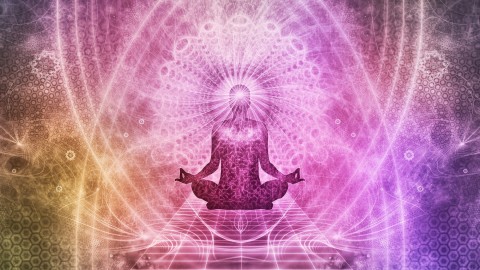Knowledge And Understanding
Knowledge and understanding are not synonymous. Understanding is a totally different dimension. Understanding means: what you have heard, you have also realized it through your own experience. You have also lived it. What you have heard has become your realization and your experience.
Knowledge can be stolen, knowledge can be destroyed, contrary arguments can be given against your knowledge. But there is no way to take away your understanding. No logic can destroy your understanding; understanding rises above all arguments.
You touch fire and find that your hands get burned: now if all the scholars of the world were to tell you that fire is cool and give arguments for it, you would say, “Keep your arguments to yourself. I have touched fire and I have experienced that my hands were burned.”
Nobody can influence you against your own experience, but anybody can influence you against your knowledge because knowledge has no roots within you.
In many Indian forests there is a particular yellowish creeper called amarbel. This creeper has no roots of its own, but it spreads over the other trees. It depends totally on them for its food and nutrition. It exploits them. It has no life-source of its own, it has no contact with the earth. Knowledge is like the amarbel. What you call scholarship is also like the amarbel: it has no roots of its own, it has no connection with the sources of life-energy. It has no penetration into experience.
Understanding is like a tree whose roots have reached very deep into the earth and have found the hidden sources of water. Such a tree can live on its own, it is not dependent on the others. A scholar always lives on the authority of others. He says. “It is written in the Gita, therefore it is true. It is written in the Koran, therefore it is true.” He says, “Mohammed has said it, therefore it is true” – but he does not have any treasure of his own experience.
The enlightened one says, “This is my experience, hence it is true. And if the Koran, Bible. Gita and Vedas are against it, then they must be wrong. There is no way for my experience to be wrong. My own realization is above all scriptures.”
That is why it is said that the ultimate Veda, the ultimate knowledge, is hidden within. Only the people who have no experience, no realization of the inner. depend on the outer knowledge. The ultimate master is hidden within. One has to depend on the outside master only as long as one has not yet come into contact and communion with one’s own inner master.
The so-called man of knowledge is far more foolish than the so-called fool, because the fool at least is innocent. He is ignorant, but he has no pretensions of knowing – that much truth is his. But the man of knowledge is in a far greater mess: he knows nothing but he thinks he knows. Without knowing, to believe that one knows is to remain forever rooted in ignorance.
Knowledge is a way for ignorance to protect itself – and it protects itself very cunningly, very efficiently, very cleverly. Knowledge is the enemy although it appears as the friend.
Tags: Intrinsically Unknowable Knowledge And Understanding Knowledge Is Borrowed Love Meditation Oceanic Unity Total Ecstasy










